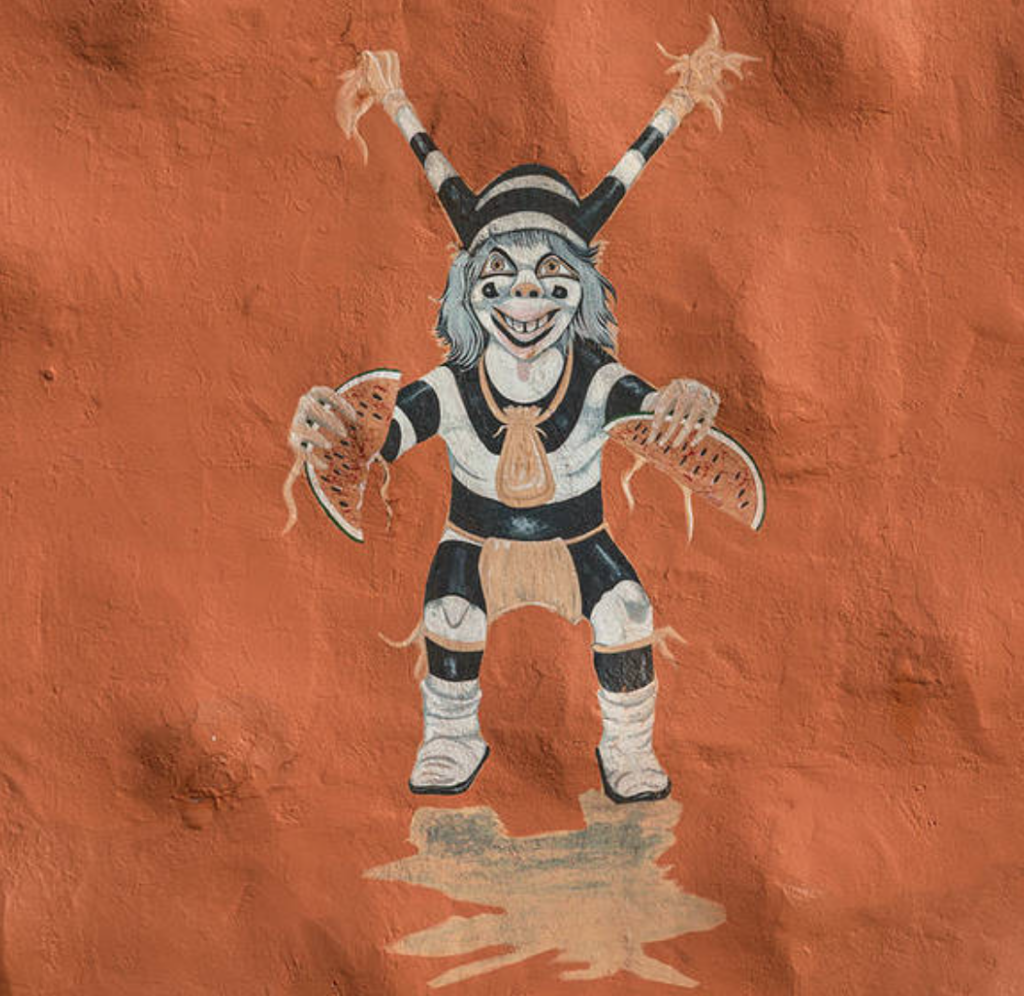
Some years ago, I started writing a blog on the archetype of the clown. Later that evening, I found out that Robin Williams, one of the greatest and most sensitive of clowns, was dead.
The week before, I had been watching quite a bit of stand up comedy of Louis C.K., I wanted to write about the importance of the clown, the jester, or in the Hopi tradition the Koshare.
What I wanted to write about was how one of the functions of the clown was to show us our shadow- the dark, rejected and unconscious side of our personalities. The part of our personalities that are incompatible with our socially accepted persona.
In myths and fairy tales it is the court jester, the fool, the clown, the idiot who is able to be the closest to the King. In fact, it is only the fool/clown who can get away with pointing out the King’s own backside. The King often goes to the fool for advice. Why is this? The fool always tells the truth. It may not be a truth that is always palatable, but it is the truth.
In the Hopi tradition the Koshare (clown) Pueblo Clowns (sometimes called Sacred Clowns) are a kind of jester or trickster in the Kachina religion practiced by the Pueblo Indians of the southwestern USA. These sacred clowns perform during the fertility rites during the spring and summer months. I remember learning about these Sacred Clowns during a course that I took at N.Y.U. on Native American Art. I can remember enjoying hearing about how these clowns often did the exact opposite of what was considered to be “proper” in the culture. The Koshare clowns would often fornicate in public, eat their own feces and drink their own urine. They might walk backwards, on their hands, or do things that shocked, horrified or humored the community. I love how the Koshares wear the black and white stripes to me indicating something of consciousness of the opposites in us. We are not just light and we are not just dark- we are a combination of the two. Here in this image the Koshare is handing over a stinky skunk in one hand while offering flowers in the other. What a brilliant depiction of the comedian! We don’t know whether to turn away or to thank them!
To me, the modern day comedian holds the sacred position much as the Koshare does. The comic is the funniest when he can point to shadow in our society whether that be personal, political or collective. When Louis C.K. talks talks about his eating gallons of ice cream then passing out, and then shitting, he is embodying the Koshare. Why do we laugh? Why are we horrified? Why are we both? Because the clown, like the court jester in the fairy tales and myths, can show the King his backside. The clown exposes our collective “privacy” and puts it all out there- and we find ourselves laughing, not only alone, but often with a room full of people who are also laughing. If the joke works, we feel uncomfortable. This is how facing the shadow feels.
This collective encounter with our shadow through the humor of the clown functions as a healing for a society. When we identify with the light side of ourselves only we are out of balance. The sacred clown invites us to move beyond our taboo thinking. It says, “HEY! I am going to show YOU to YOURSELF so that you can move past your shame.. in fact I am going to invite you to actually LAUGH at what you try to hide.” Our being given permission to be a whole person, not just a half is an enormous gift. The ability to laugh at ourselves is essential for our sanity. Bringing our shadow out into the open is something that connects us to others- it does not isolate us.
This brings me back to thinking about Robin Williams. It is not a mystery why many clowns are so funny. They often suffer more than most of us to. In order to actually see and/ or live out the collective shadow is a horrible burden to carry. There is a reason why comedians stand up on stage- alone.
Robin Williams is someone who made fun of both himself and society. He largely pointed the finger at the insanity that mushrooms out of control when one is fated with an addiction problem. By making fun of himself, Robin Williams is pointing out the excess in all of us and how very little control we truly have.
For whatever was joyful and outrageous in his humor, he also suffered with horrible depression and addiction. He shows us that no matter how much money or fame we might or might not have, none of us are immune to the monsters that plague us inside. Perhaps the final piece of wisdom that this brilliant clown shared with the King is that contentment cannot be found in people, places or things. But most importantly that depression kills. Depression and addiction kills and that is not funny.
His death reminds me to be kind to those who laugh the loudest. While offering us the medicine of inviting us all to laugh at ourselves, the clown may be the one who truly does, at the end of the day, stand all alone. As an archetype, we may each carry a bit of this Koshare inside of us. The trickster who does not expose his or her secret pains, who anguishes and feels alone in the darkness of our own minds. In a world full of Facebook “likes” there is another more private world in all of us that we rarely share with others although these parts of ourselves are not funny and perhaps not even socially acceptable. Today, these secret sufferings of mental illness may be the final taboo to bring out more and more into public acceptance, compassion and caring.
I am deeply saddened by the loss of this Sacred Clown. I will miss his showing me, in whatever ways that he could, my own backside.

